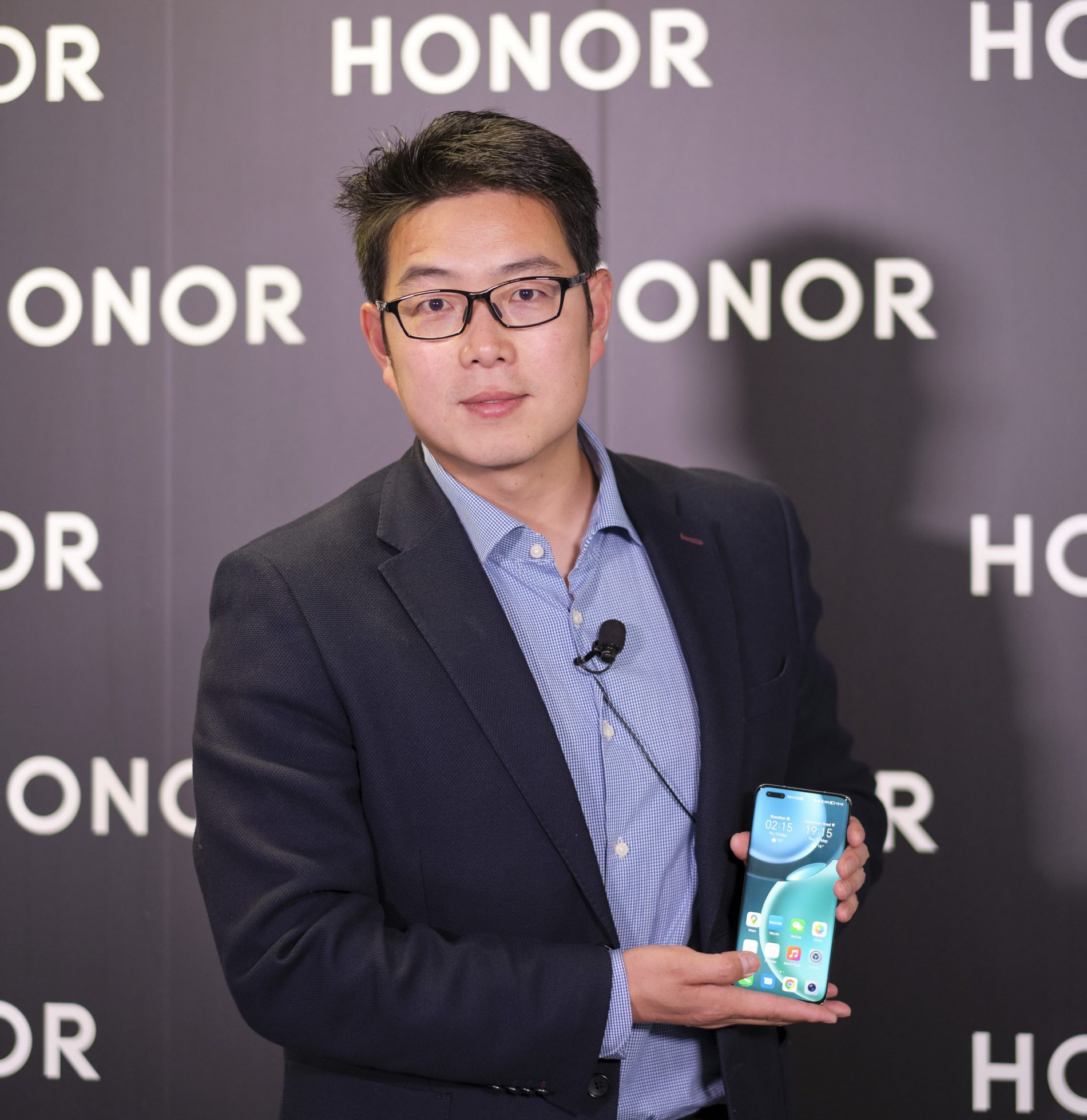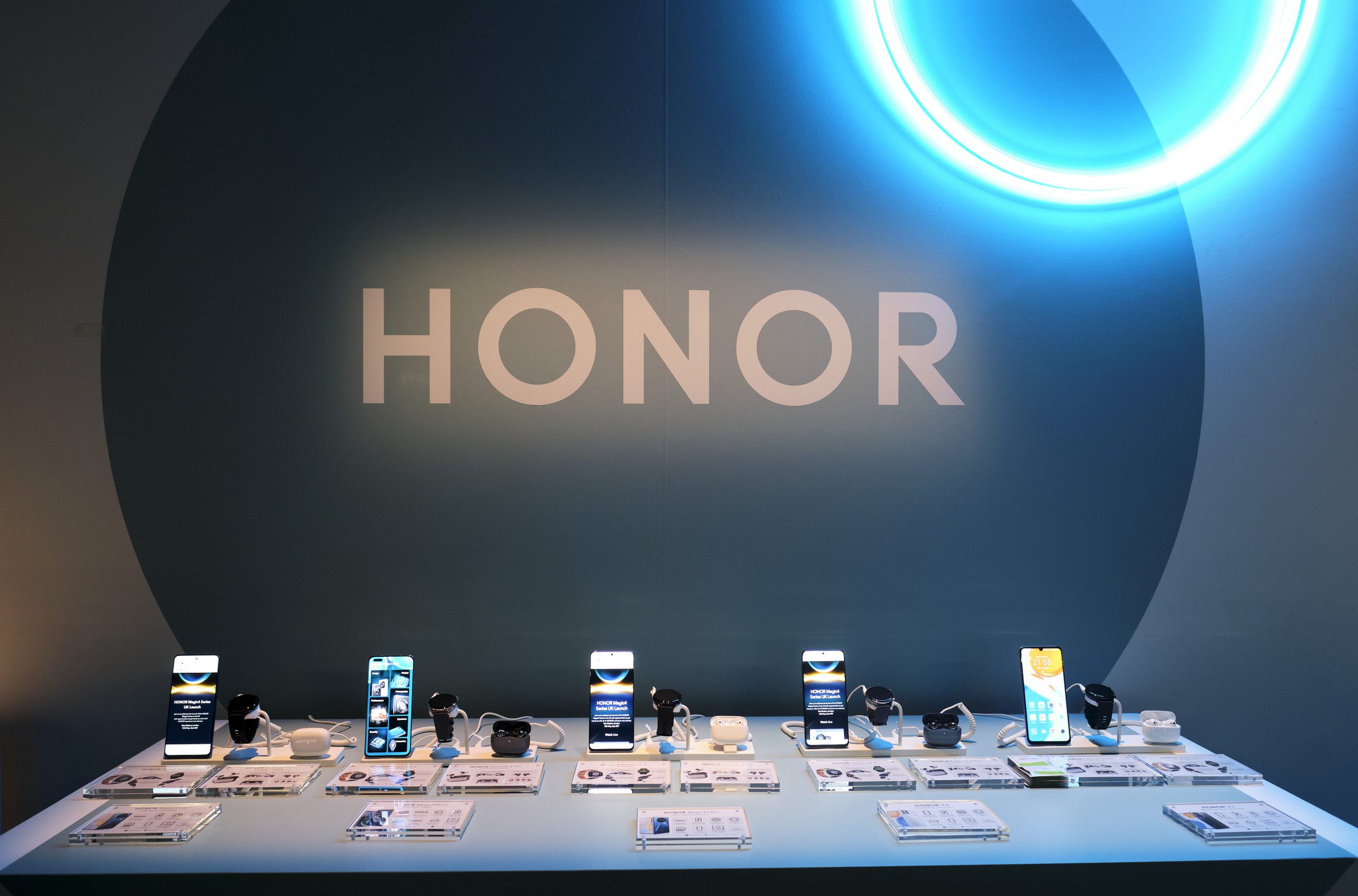Since splitting from parent company Huawei in November 2020, Honor has sought to chart its own course in the market. With new products like the Magic4 Pro, can it take things to the next level?

Since its separation from parent company Huawei in November 2020, Honor has been trying to prove itself as a standalone brand, launching the Honor 50, X and Magic4 series of smartphones.
First founded in 2013 as a sub-brand of Huawei, Honor phones were marketed to a younger audience and offered a cheaper alternative to its parent’s mid-range devices.
Since being sold to Shenzhen Zhixin New Information Technology in 2020, Honor has grown from its low-budget origins as the global launch of the Honor 50 series in November 2021 came with a mid-range price.
Additionally, the company launched the Magic4 Pro, a premium global flagship, which it introduced in the UK in May.

The Chinese supplier also aims to establish itself as a reliable technology brand through its products and innovations.
Bond Zhang, Country Manager for the UK, said Magic4 Pro helps Honor establish itself internationally.
“We want to make our products available and easy to access for UK consumers, so we currently sell through Three, Vodafone, Currys, Amazon, Argos, John Lewis and Very,” says Zhang.
Zhang’s roles
Zhang has been in his current role since 2017, after more than a decade at Huawei, where he has worked across Asia and found success as the brand expanded to Malaysia, India and Japan in mid-2015.

Honor became number one in the Chinese smartphone market for the first time in the first quarter of 2022, according to Canalys, shipping 15 million units for a 20% market share.
In the global smartphone market, the vendor saw shipments increase 148% year-over-year in the first quarter of 2022, according to Counterpoint Research.
This gave Honor a five percent share of the total market, up three percentage points from the previous year.
Zhang points out that it was a substantial achievement to reach number one in China, believing that innovation is a driving force behind the numbers.
“Globally, we have 12,000 employees, six research and development centers and more than 100 innovation labs to create cutting-edge technologies and IoT capabilities,” he says.
“We adapt and follow the needs of consumers while combining innovative technologies to help us be well positioned in the global market.”
Honor’s current market share in the UK is unknown, with Zhang saying the company hasn’t had those numbers for some time.
“Market share is not our priority right now,” he says. “Instead, we want to provide best-in-class products, improve brand awareness and expand our roster of partners.”
make waves
For a new player in the smartphone market to make waves in the market, it needs to have the right products, competitive pricing and a marketing budget, says Ben Wood, chief analyst and CMO of CCS Insight.
“In Honor’s case, it clearly has some attractive products that build on its Huawei heritage, and it looks like the company is happy to make an investment to try to grow its share in the UK,” he says. .
“Many would say that Apple and Samsung are Honor’s biggest competitors, but my opinion is that Honor mainly competes against Oppo and Xiaomi to compete for ‘third place’.
“Ultimately, Honor will have to try to displace a rival to get traction.”
Ernest Doku, Uswitch’s broadband and mobile expert, agrees that the competition for Honor includes Oppo, Xiaomi and Google, and the vendor will need to chart its own course to succeed.
“The UK mobile phone market is a unique and fiercely brand loyal sector,” he says. “However, the cost of living crisis has caused some consumers to change their buying decisions.
“There is every chance for Honor, with a strong portfolio of handsets across all segments, sustained marketing efforts and strong retailer network and support, to advance in a competitive arena.”
Honor is competing with other vendors to replace what Huawei used to be, according to Canalys analyst Runar Bjorhovde.
“In Q1 2022, Apple and Samsung took over 80% of the combined UK market and opening in third place requires a much lower market share,” he says.
“Oppo, Xiaomi, Motorola, HMD Global, Google and TCL all have between 1 and 5% market share, but none of these brands have been able to deliver a unique enough proposition to capture third place in the long term. .”

Marketing push
For Honor to appeal to UK consumers, Doku believes it needs to engage in a strong marketing presence and focus on a specific consumer segment.
Zhang agrees that Honor needs to increase brand awareness and recently worked with the London Film School, where students used the Magic 4 Pro to take photos and shoot videos.
“We will continue our national campaigning efforts, establish an offline and online presence and continue to train our staff, while working with our partners to help improve our brand image and awareness in the UK” , did he declare.
Wood encourages Honor to make its mark in the smartphone industry by spending money on advertising and sponsorship, like Oppo did recently at Wimbledon.
“It’s taken nearly a decade and billions of dollars for Huawei to build its brand, so if Honor is serious, it must be in it for the long haul and exceptionally well funded.”
But sponsorship, marketing and advertising aren’t the only things Honor needs to do to get its name out there.
“Rebuilding trust will also be a key aspect for Honor after Huawei has earned a bad reputation over the past two years,” adds Bjorhovde.
“According to Canalys consumer research, trust is a top driver for consumers, both in terms of people’s ability to trust hardware and software over time, as well as to data protection.”
pave a path
The fall of Huawei meant that associated brands were tarred with the same brush by some and had to prove themselves as individual companies.
Honor was one of those brands, but the manufacturer has been gaining international momentum and was retuned access to Google mobile services when it launched the Honor 50 series in 2021.
But there’s still a long way to go before Honor can experience similar success to Huawei and completely shed the association with its former parent company, observers say.
Bjorhovde says Honor faces tougher competition from other Chinese brands than when Huawei entered the market.
“The trick for Honor will be in how it interacts with channel partners,” he says.
“Unique input and strong collaborations can be important in understanding consumers locally and understanding where the challenges lie for those who deal directly with consumers.”
According to Doku, Huawei’s growing popularity has been driven by the uniqueness of its devices, pricing, specifications and marketing spend.
He thinks Honor will need to replicate success in these types of areas to gain more traction itself.
“The Magic4 Pro’s performance will be a great leading indicator to see if Huawei’s fortunes can be repeated,” he says. “Convincing consumers to commit to a premium device is a huge hurdle, so if Honor can clear that hurdle, there’s a greater chance of victory.”
For his part, Zhang says he always believed that Honor would be able to chart its own course in the market, separate from Huawei.
“I was always confident, even in 2020 when we knew we would be apart,” he says. “Since then, we have built strong relationships with global industry partners. For example, Honor’s R&D team worked more closely than ever with the Qualcomm team to unleash the power of its chipset.
“Last year, we mainly focused on the channel market, and within a year we were number one in China.
“Now we are investing in foreign countries and improving revenue, market share and brand awareness for the premium segment.”

Range extension
Zhang wants to expand the supplier’s mainstream lineup, offering products from entry-level to high-end, and bring cutting-edge innovations to the brand.
Tackling all segments of the market can be tricky, but Bjorhovde thinks that if the Magic4 Pro really gets a foothold, such success could trickle down to other parts of the market for Honor.
“A combined portfolio of devices across all price ranges is important because bringing an impressive high-end device to market can translate into better performance from cheaper devices,” he says.
“Building sustainably at the high end will take time for Honor, and starting with a broad portfolio will help it capitalize on opportunities and maintain strong ties with the channel.”
However, Doku and Wood believe it’s not always beneficial to target different price segments.
“Having a halo product is always a big plus – it resonates well with tech media and helps raise awareness,” Wood said.
“However, Honor may find it more successful by being ranked in affordable segments with respect to driving volume.”
Doku, meanwhile, thinks the Magic4 Pro is a capable device, but Honor’s younger demographic might not keep up in the premium segment.
“It’s a matter of being at the forefront in a rapidly changing and highly competitive market that will make the difference, whatever segment they focus on,” he says.
Additional products
Now that the Magic4 Pro has been launched globally, Zhang also hopes to establish an additional mobile phone product line within Honor’s broader ecosystem and become a top technology brand in various countries.
So far, Honor has released headphones, wearables and laptops, and Zhang revealed that more work will go into smart home, as well as health and fitness products.
Bjorhovde says there is a need for a vendor like Honor to provide IoT devices, although that can no longer act as a differentiator in the market. This means that other strategies will be needed to achieve this.
“Honor’s IoT products will allow it to open doors in the channel, but building a brand through different marketing channels will be key,” he said.
Meanwhile, Doku says Honor still needs to do some brand education in the mobile space before branching out with other products.
However, he says, the company can be successful “if the innovation is there and priced in a way that drives adoption.”
“More product and IoT efforts, a continued focus on the European market – where price is the driving factor – and a pipeline of powerful devices across all consumer sectors could see Honor become a force to be reckoned with in the coming years.”



